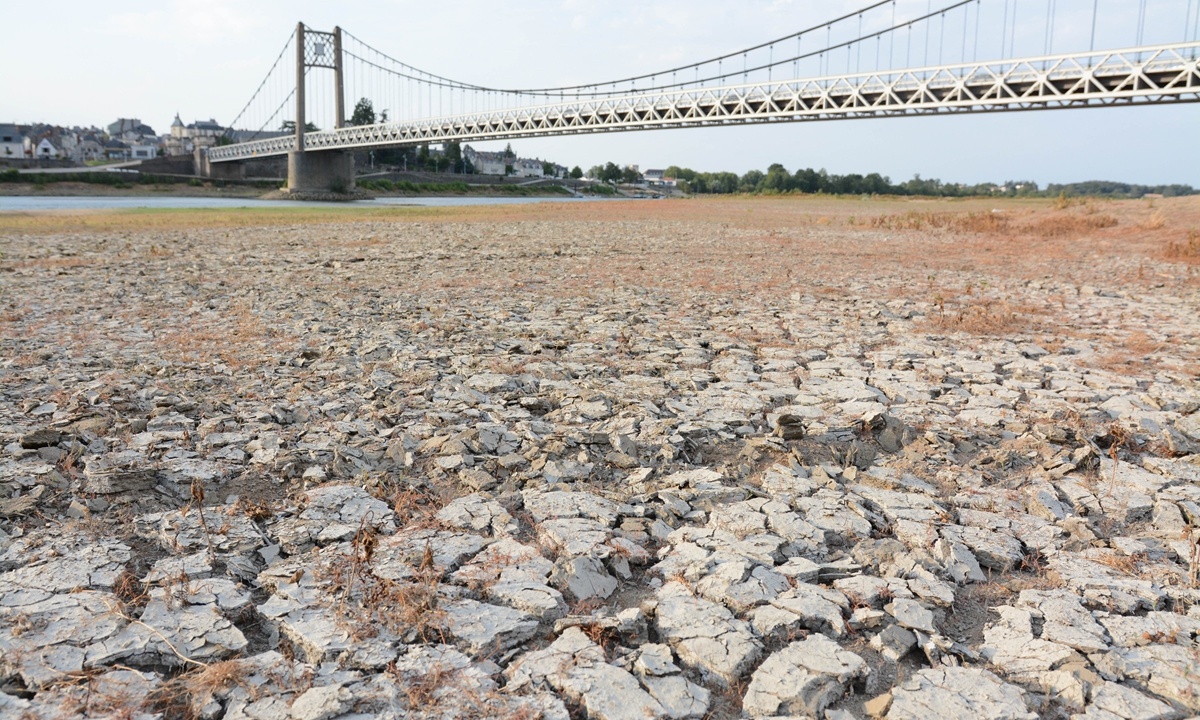Recent summer droughts in Europe were the most severe the region has seen in 2,110 years as climate change has stoked punishing heat waves, according to new research Monday that raises the alarm for ecosystems and agriculture.

Loire Basin Extremely Low Level - France. A picture taken on July 25, 2019 shows a dry part of the River Loire in Ancenis-Saint-Gereon, western France, as drought conditions prevail over much of western Europe. (Photo: VCG)
Using data from tree rings in living and dead European oaks going back to the time of the Romans, scientists identified a long-term drying trend that suddenly intensified in 2015 beyond anything seen in two millennia. The researchers said that this cluster of abnormally dry summers was likely caused by human-driven climate warming and changes to the circulation of the jet stream.
"Climate change does not mean that it will get drier everywhere: Some places may get wetter or colder, but extreme conditions will become more frequent, which could be devastating for agriculture, ecosystems and societies as a whole," said lead author Ulf Buntgen, of Cambridge University.
Buntgen, a professor of environmental systems analysis, said the research showed that consecutive summers of intense heat and drought experienced since 2015 is "extraordinary for central Europe," in a statement by the university.
To study the timing and severity of historical droughts, researchers analyzed 147 oak trees - including logs pulled from old buildings and archaeological sites and living trees from what is now the Czech Republic and parts of Bavaria - covering a period of 2,110 years.
They then measured the oxygen and carbon isotope composition of 27,080 growth rings.


